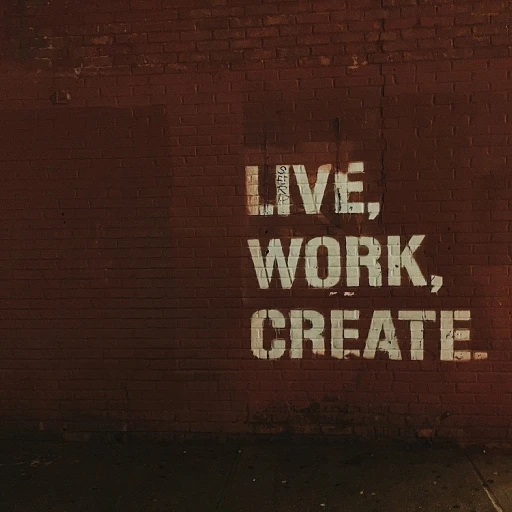
Understanding Work-Life Balance
Defining the Balance
Work-life balance is an essential aspect of modern employment that influences both professional success and personal well-being. It is a state where individuals manage their job and personal life effectively, ensuring neither overshadows the other. Achieving this equilibrium is vital for maintaining mental health, enhancing productivity, and promoting overall happiness.
The Emerging Importance
In recent years, there has been growing recognition of the importance of work-life balance. Employers and employees alike are more aware of the need to set boundaries between work responsibilities and personal time. Understanding balancing ambitious careers with personal well-being has become a critical conversation in workplaces globally.
Implications for Career Development
For many, work-life balance impacts career decisions significantly. Whether contemplating quitting or navigating the aftermath of being fired, the equilibrium between job demands and personal commitments often dictates the chosen path. Addressing work-life balance proactively can prevent situations such as burnout or wrongful termination, allowing for a healthier career trajectory.
Influence on Employment Decisions
Exploring your current situation's balance—or imbalance—can provide insights into whether quitting a job may be advantageous or if waiting for potential dismissal aligns better with your career and personal goals. If quitting job for a healthier work-life balance seems overwhelming, assessing unemployment benefits, potential severance, or legal implications of quitting can inform your decision.
Signs It's Time to Consider Leaving Your Job
Signals That Call for a Change
Are you feeling trapped in your current job, constantly questioning if sticking around is the right move for your work-life harmony? It's crucial to identify signals that may indicate it's time to reevaluate your current employment situation. Recognizing these signs can help you make informed decisions about whether quitting, waiting to be fired, or seeking another opportunity is the best route for your career and personal well-being.- Job Dissatisfaction: If you frequently find yourself uninterested in your tasks, it may be a sign that a change is necessary. The ongoing dissatisfaction can negatively impact your mental health and lead to burnout.
- Toxic Work Environment: Enduring a hostile or negative workplace without the hope of improvement can wear you down. When dealing with toxic employers or colleagues, your job performance and your mental and emotional state can significantly suffer.
- Lack of Growth Opportunities: Consider whether your position offers chances for development. If the company's structure doesn't provide room for career advancement or skill enhancement, it might be time to evaluate other paths.
- Value Misalignment: If you feel the company's values no longer match your own, this misalignment can lead to internal conflict and reduced job satisfaction. When your career fails to reflect your personal principles, it might be time to assess what changes you need to make.
- Stress and Health Issues: Prolonged stress from work can manifest in physical and mental health issues. Consistently experiencing anxiety or fatigue related to your job should prompt a consideration for change, as maintaining health is pivotal in balancing ambitious careers with personal well-being in the long term.
- Compromised Work-Life Harmony: Are you finding it difficult to maintain a healthy balance between your work and personal life commitments? When your job constantly spills over into your personal time, risking your relationships and personal goals, it's a clear warning sign.
Pros and Cons of Quitting
Evaluating the Pros and Cons of Quitting Your Job
Deciding whether to quit your job or wait to be fired is a complex decision that involves weighing multiple factors. Understanding the advantages and disadvantages of quitting can help you make a more informed choice.Advantages of Resigning
- Control Over Timing: By choosing when to resign, you can prepare for the transition period, line up another opportunity, and ensure that leaving aligns with personal and professional timelines.
- Professional Reputation: Quitting can allow you to leave on better terms, maintaining professional dignity and relationships which might be beneficial for future networking and references.
- Mental Health Preservation: Leaving on your terms may reduce the stress and uncertainty that often accompanies being fired.
- Severance and Benefits Negotiation: While being fired might offer some severance, voluntarily resigning doesn't necessarily exclude you from negotiating these benefits, although policies vary by company and situation.
Disadvantages of Quitting
- Unemployment Benefits: Resigning typically means forfeiting unemployment benefits since eligibility often depends on being involuntarily unemployed. Consult with employment law experts to understand your specific rights.
- Financial Strain: Without unemployment insurance or a new job lined up, the time between jobs can be financially challenging.
- Timing and Readiness: Leaving too soon without a backup plan can lead to employment gaps which may impact future job prospects.
Other Considerations
Legal and financial considerations are vital when deciding whether to quit or wait to be terminated. While quitting offers a measure of control, the potential loss of unemployment benefits might outweigh the short-term relief of leaving. Consider speaking with a career coach or an employment law attorney to better understand your rights and options. For more insights into navigating work-life balance, visit Understanding the responsibilities of a PCA - navigating work-life balance.Pros and Cons of Being Fired
Analyzing the Effects of Being Fired on Your Career
Navigating the complexities of work-life balance decisions sometimes means facing the possibility of being fired. While the thought of losing a job is uncomfortable, it's essential to understand the pros and cons of this scenario. This knowledge can help you make informed choices as you weigh your options between quitting and potentially being terminated. One downside of being fired is the sudden halt in employment, which can disrupt your financial plans. Without a steady paycheck, managing daily expenses and long-term financial goals becomes challenging. However, for individuals with a severance package or those eligible for unemployment benefits, immediate economic impact can be somewhat mitigated. Insurance and benefits packages should be reviewed carefully, as they often change upon termination. There's also the impact on your career trajectory to consider. Being fired can sometimes carry a stigma in the job market, making future employment difficult. While employers understand that terminations often happen, some may still view candidates more favorably if they chose to leave a job versus being asked to leave. Conversely, there are potential legal benefits to being fired. If you suspect wrongful termination or constructive dismissal, you may have legal grounds to contest your dismissal. Employment laws are designed to protect your rights, and it's worth consulting with a legal expert to explore your options. Documenting your journey and communicating appropriately with your employer is vital during this time. On a more personal note, being fired can negatively affect mental health. The sudden loss of a job can lead to stress and anxiety. However, it might also serve as a catalyst for positive change. It can push you to find a career more aligned with your skills and values, improving well-being. Ultimately, understanding the implications of termination helps you make balanced decisions. It’s crucial to weigh these against your unique work-life balance needs.Legal and Financial Considerations
Assessing Legal and Financial Implications
When contemplating whether to quit or wait to be fired, evaluating the legal and financial implications of each scenario is crucial. This decision can significantly impact your career, finances, and overall work-life balance. Here’s a breakdown of what you need to know.
- Severance Packages: In many cases, being fired might come with a severance package or severance pay, helping ease the transition by providing temporary financial support. Employers might offer this to prevent any potential claims of wrongful termination or to maintain a positive company reputation.
- Unemployment Benefits: The eligibility for unemployment benefits can vary depending on whether you quit or are fired. Generally, if you quit your job, you may not be eligible for unemployment insurance. However, certain circumstances like constructive termination, where you felt compelled to leave due to intolerable work conditions, might still make you eligible.
- Legal Rights and Employment Law: Understanding your legal rights under employment law is crucial. If you suspect wrongful termination, consulting with a legal expert can help you to determine if your rights have been violated. Knowing these rights can help you better navigate the possible repercussions of quitting or being terminated.
- Resignation and Termination Documentation: A well-crafted resignation letter can be vital in maintaining a positive professional relationship with your former employer. Alternatively, when being fired, it’s important to obtain documentation regarding the reasons for your termination, which can be useful should any legal challenges arise.
- Impact on Future Employment and Job Search: Quitting a job on your terms could provide you with better control over your timeline for finding a new position. On the other hand, being fired might come with a stigma that could impact future job searches. How employers view terminations varies widely, so researching prospective companies' views on termination could be in your best interest.
Ultimately, engaging in a thorough assessment of these factors will support a more informed decision-making process. Balancing legal and financial considerations with personal and career motivations can ensure that the decision you make aligns with your long-term goals and work-life balance aspirations.
Making the Right Decision for Your Work-Life Balance
Evaluating the Best Path for Your Personal and Professional Growth
Deciding to either leave your workplace voluntarily or wait for possible dismissal is a deeply personal choice that heavily impacts your work-life balance. This decision isn't simply about career trajectories; it also encompasses your mental health, personal circumstances, and future prospects. Understanding your current situation is key. Reflect on the signs you've recognized that may indicate a departure from your job is necessary. Whether those signs connect to your dissatisfaction at work or external pressures, these factors are crucial to ponder. Weighing the pros and cons of quitting versus being fired is instrumental. Each path presents unique challenges and benefits. For example, quitting may allow you to negotiate a severance package and avoid the stigma of termination. On the other hand, being laid off might make you eligible for unemployment benefits, provided your situation aligns with employment law requirements. Legal and financial considerations play a substantial role in your decision. Investigate whether unemployment insurance can provide a safety net in case of job loss, and understand your rights regarding constructive termination and wrongful termination. Consulting with a professional in employment law can be beneficial in navigating these complex issues. When aiming to make the right decision for your work-life balance, consider the following steps:- Assess your mental health and personal priorities. Whether you continue or leave, your well-being should be a priority.
- Plan your next career move. A clear job search strategy can ease the transition, whether you're resigning or experiencing a termination.
- Financial preparedness. Ensure you have savings or a financial plan to bridge the period of unemployment should you leave your job.













